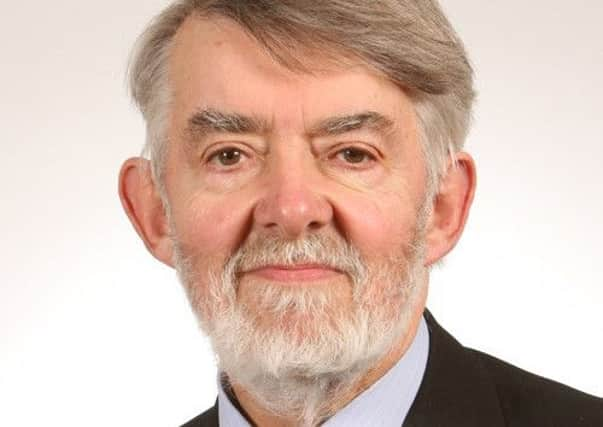Paul Flynn, Labour MP


An accomplished author, his dogged campaigning on issues ranging from the legalisation of marijuana to devolution and Tony Blair’s accountability over the Iraq war became a hallmark of his 31 years in the Commons - most of which was spent launching broadsides from the backbenches.
Born in Cardiff on February 9 1935, he won a place at St Illtyd’s Catholic College, a grammar school, and went on to study at Cardiff University.
Advertisement
Hide AdAdvertisement
Hide AdIn his 2010 memoir, The Unusual Suspect, he reflected: “There was no moment when I became a supporter of the Labour Party. We were Labour, just as we were Catholic and Welsh.”
A first career in the steel industry followed school, working as a chemist initially at East Moors in Cardiff and then at Llanwern in Newport.
After nearly three decades tempering his mettle in Wales’ industrial heartlands, he entered politics in the early 1970s and served as a councillor first for Newport borough then Gwent county.
He had a go at Parliament in the second election of 1974, standing for Labour in Denbigh, although it was not until 1987 that he would enter the Commons after taking Newport West from Conservative Mark Robinson, who had unexpectedly taken the seat four years earlier.
Advertisement
Hide AdAdvertisement
Hide AdAged in his early 50s yet with only a fledgling Westminster career, Mr Flynn was appointed to Labour’s front bench in June 1988 by fellow Welshman Neil Kinnock, who made him shadow health spokesman.
But the position was short-lived and he returned to the backbenches 12 months later - where he would remain for the next 26 years.
In the burgeoning era of New Labour, the left-winger became a vocal critic of Mr Blair and his leadership of the party, on one occasion branding its policies in opposition as “timid and anaemic”.
In the late 1990s he lent his support to efforts by fellow stalwart of the left Tony Benn in an effort to wrest powers away from the “increasingly presidential” Labour leadership.
Advertisement
Hide AdAdvertisement
Hide AdMr Flynn consistently opposed Britain’s intervention in Iraq and Afghanistan and backed calls for Mr Blair to be prosecuted following the release of the Chilcot Report in 2008.
Another longstanding issue of concern to Mr Flynn dating back to the early 1990s was the debate around the legalisation of cannabis, which he had advocated as a means of reducing harm.
While perhaps most comfortable as a rebel, Mr Flynn did eventually return to the frontbench, serving as shadow leader of the house and shadow Wales secretary in 2016.
Aged 81, he was the oldest MP to serve on the front bench since Gladstone and called for more octogenarians to hold the roles in the interests of diversity.
With ailing health he announced in October 2018 his intention to stand down at a “convenient time to go”, describing his time in Parliament as a “great, wonderful, rich experience”.